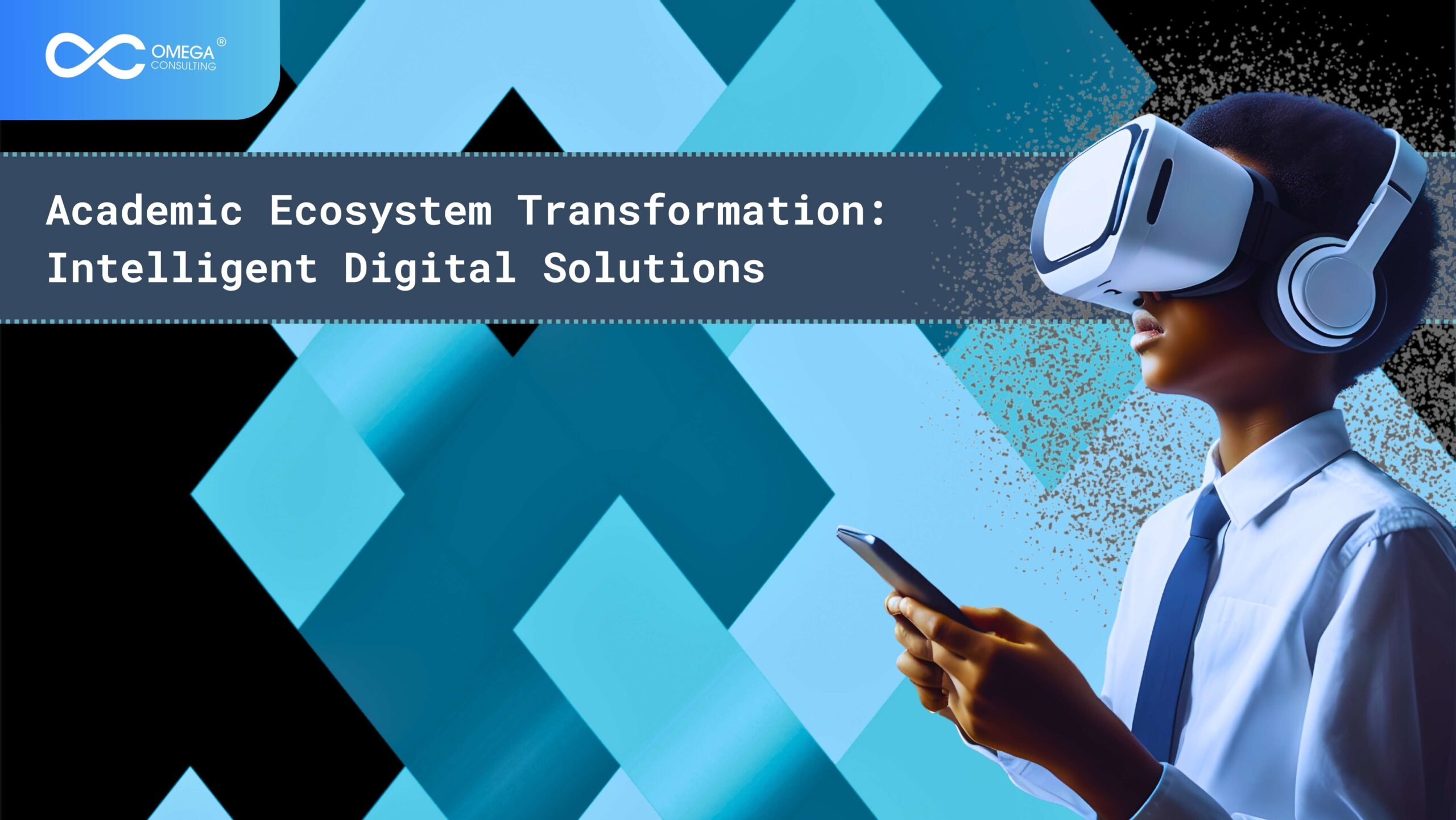- Industries
Industries
- Functions
Functions
- Insights
Insights
- Careers
Careers
- About Us
- Technology
- By Omega Team

Background
A private college located in Massachusetts offers 40–50 undergraduate and graduate degree paths across a wide range of disciplines including Business, Law, Engineering, Health Sciences, and Theology. Despite having a basic digital infrastructure—including Canvas (LMS), Zoom and Teams for live classes, Proctorio and Turnitin for assessments, and Panopto for lecture recordings—several limitations remained.
The institution faced challenges such as fragmented tool access, uneven tech adoption across departments, limited real-time analytics, and a growing need for scalable, student-focused solutions. Both faculty and students cited issues with engagement, lack of personalization, outdated hardware, and difficulty managing course workloads.
Although the college maintained a solid IT budget and some flexibility for piloting new EdTech, it needed a strategic partner to fully modernize its systems and create a seamless, data-driven academic experience.
Omega Strategy
Omega Consulting collaborated with the college to design and implement a forward-thinking digital roadmap with the following priorities:
- i) Infrastructure Assessment: Conducted an end-to-end audit of current systems including the Learning Management System (LMS), assessment tools, teaching platforms, and data access workflows.
- ii) Integration Blueprint: Proposed a central analytics hub by integrating LMS data, student performance metrics, and feedback loops into an AI-powered dashboard accessible to faculty and academic advisors.
iii) Solution Deployment: This included multiple layers—
- AI-Powered Smart Tools: Implemented adaptive learning assistants and 24/7 academic chatbots to enhance student engagement and feedback.
- Holographic Learning: Piloted hologram-based lectures using Holographic Capture & Display Units for remote instruction and guest faculty.
- Extended Reality (XR): Introduced immersive AR/VR modules across disciplines such as Business, Engineering, and Health Sciences to support virtual labs and hands-on skill-building.
- Smart Campus Technology: Enabled IoT-based attendance systems, energy-efficient classrooms, and biometric-secured testing environments.
- iv) Faculty Enablement: Trained over 10 faculty members in XR pedagogy, use of analytics dashboards, and AI-supported tutoring methods.
- v) Scalability Focus: Ensured all solutions were modular, interoperable, and aligned with the institution’s mobile-first and accessibility-driven digital strategy.
Digital Impact
Omega’s intervention transformed the college into a digitally agile institution. By integrating student dashboards and real-time analytics, reporting and feedback cycles were reduced by 60%, enabling faster and more informed academic decisions. Student satisfaction increased significantly with AI-powered career assistants, interactive XR-based learning, and a hybrid-flexible course delivery model.
The college also saw a decline in academic drop-off rates, supported by personalized learning pathways and predictive risk alerts via business intelligence dashboards. A centralized, mobile-accessible academic ecosystem reduced platform-switching friction for students and staff, creating a smoother digital experience. Faculty were also empowered with data-driven insights, aiding timely and effective instructional decisions.
Through this transformation, the college is now positioned at the forefront of educational innovation, offering scalable, tech-enhanced learning environments to meet the evolving needs of modern students.
Subscribe
Select topics and stay current with our latest insights
- Functions